This is the scandalous story of how the Maasai people of Kenya lost the best part of their land to the British in the 1900s. Drawing upon unique oral testimony and extensive archival research, Hughes describes the intrigues surrounding two enforced moves and the 1913 lawsuit, while explaining why recent events have brought the story full circle.
Moving the Maasai: A Colonial Misadventure (St Antony’s Series) 1st ed. 2006 Edition
KSh 15,260.00
1 in stock
| SKU: | 9781349545483 |
|---|---|
| Categories: | African Interest, History books |
| Author | L. Hughes |
|---|
Related products
-
Partnership in Higher Education -African Higher Education: Developments and Perspectives
KSh 6,000.00Trends in institutional partnership in higher education have shown tremendous growth in the past three decades. These trends are manifested through the growing initiatives of joint programs that promote collaborative research, academic mobility, joint curriculum development and course delivery, joint bidding for development projects and bench marking. Partnerships in higher education have been used not only as an instrument for institutional development through a wide range of strategic alliances but also as an essential way of introducing new voices to the operations of the universities by initiating new paradigms that bring new perspectives and bear competitive advantage on the partners. As the trend of partnership in higher education grew, scholars in higher education studies have also engaged in conceptualising higher education partnership from academic perspectives, analysing trends and developing models of higher education collaborations.
-
Beyond White Mischief: The Memoirs of a Tea Planter’s Wife-SHEILA WARD
KSh 395.00When Sheila Ward went off to RADA to train as an actress in the early 1950s, she had no idea of the stormy path her life would take. After a short career as an actress in rep, with all the joys of juggling different roles and the comic possibilities of living in grim digs on very little money, she met and married a tea planter, and went off to live in Africa.
Through Sheila’s diaries, life in Africa springs into sharp relief as she learns to live with snakes, bugs and the recalcitrant servants. Sheila and her husband have four children and gradually adapt to a very different way of life. She meets the author Gerald Durrell, and Joy and George Adamson of Elsa the lioness fame, entertains fellow ex-pats and learns to love the unique terrain of Kenya’s hills.
-
Sexuality and Gender Politics in Mozambique: Re-Thinking Gender in Africa
KSh 1,499.00Demonstrates shortcomings in Western feminist conceptualizations, and shows how insights from African feminist thinking may enhance understandings of gender, both in and beyond Africa.
Winner of the 2012 gender research award KRAKA-prisen.
This book is about gender politics in Mozambique over three decades from 1975 to 2005. The book is also about different ways of understanding gender and sexuality. Gender policies from Portuguese colonialism, through Frelimo socialism to later neo-liberal economic regimes share certain basic assumptions about men, women and gender relations. But to what extent do such assumptions fit the ways in which rural Mozambican men and women see themselves? A major line of argument in the book is that gender relations should be investigated, not assumed, and that policies not matching people’s lives are not likely to succeed.
The empirical data, on which the argument is based, are first a unique body of data material collected 1982-1984 by the national women’s organization, the OMM [when the author was employed as a sociologist in the organization] andsecondly data resulting from more recent fieldwork in northern Mozambique.
Importantly inspired by African post-colonial feminist lines of thinking, the book engages in a project of re-mapping and re-interpreting ‘culture andtradition’. In this context, the book investigates in particular matriliny [c. 40 per cent of Mozambique’s population live under conditions of matriliny] and female initiation. The findings open new avenues for gender politics, and for rethinking sexuality and gender – in Africa and beyond. -
Star Dust Falling
KSh 650.00In August 1947 in the highest of the High Andes, one of the earliest long haul passenger aircraft, a Lancaster called Star Dust, disappeared en route to Santiago, Chile. It left behind only questions: was it sabotage; was there a horde of gold on board; and what was the meaning of the radio operator’s mysterious final message before the air waves fell silent? Only with the discovery of the wreckage by two Argentinian climbers in January 2000 could those questions finally begin to be answered. Star Dust Falling is the story of those on board that pioneering aircraft and of the ramshackle airline British South American Airways which sent them to their deaths. Run by an austere Australian war hero newly arrived from bomber command, BSAA’s flying crew consisted entirely of ex-bomber pilots. The fleet of converted Lancaster Bombers operated on a shoestring, regularly flying without sufficient fuel or access to adequate weather forecasts. The result was that it became one of the most dangerous airlines in the western world. Yet it wasn’t until a third of its planes had crashed and dozens of its passengers had died that the Government finally called a halt. In this account, Jay Rayner recreates the events surrounding the loss of Star Dust and her discovery 50 years later, piecing together the lives of the characters involved: the Chilean-Palestinian passenger with a diamond stitched into the lining of his suit; the King’s Messenger with his bag full of diplomatic secrets; the crew of fearless pilots working in unbelievably strenuous conditions; the Argentinian climbers who risked their lives to find the wreck; and the Argentinian military men who declared war on each other in an attempt to claim the credit.
-
Regionalization of African Higher Education -progress and prospects
KSh 6,720.00Regionalization of higher education in Africa is the least researched topic in the field of Social Science. In this regard, this book is a pioneer in terms of exploring both the historical and theoretical dynamics of regionalization processes within Africa. This book raises fundamental questions that focus on context and formation, operationalization and implications, and challenges and prospects of these regionalization processes. In doing so, it gives both the analytical contexts of the evolution of higher education regionalization and the current initiatives by the African Union. Dissertation. (Series: Contributions to African Research / Beitr�¤ge zur Afrikaforschung, Vol. 73) [Subject: African Studies, Higher Education]
-
Achebe and Friends at Umuahia
KSh 17,290.00WINNER OF THE ASAUK FAGE & OLIVER PRIZE 2016 This is the first in-depth scholarly study of the literary awakening of the young intellectuals who became known as Nigeria’s “first-generation” writers in the post-colonialperiod. Terri Ochiagha’s research focuses on Chinua Achebe, Elechi Amadi, Chike Momah, Christopher Okigbo and Chukwuemeka Ike, and also discusses the experiences of Gabriel Okara, Ken Saro-Wiwa and I.C. Aniebo, in the context of their education in the 1930s, 1940s and 1950s at Government College, Umuahia. The author provides fresh perspectives on Postcolonial and World literary processes, colonial education in British Africa, literary representations of colonialism and Chinua Achebe’s seminal position in African literature. She demonstrates how each of the writers used this very particular education to shape their own visions of the world in which they operated and examines the implications that this had for African literature as a whole. Supplementary material is available online of some of the original sources. See: http://boybrew.co/9781847011091_2 Terri Ochiagha holds one of the prestigious British Academy Newton International Fellowships (2014-16) hosted by the School of English, University of Sussex. She was previously a Senior Associate Member of St Antony’s College, University of Oxford.
-
From the land of Pashtuns to the land of Maa
KSh 2,000.00From the Land of Pashtuns to the Land of Maa: Memoir (2013) Kenyan-born Khan traces his father’s journey from his village in India (now within Pakistan) to Kenya in 1929, alone, at the age of 18 after a family dispute.
Here is the story of migration, of Khan’s father and other Pashtuns (mainly from the Punjab Province of Pakistan), to the Maasai tribal lands in rural Kenya. His father, Juma Khan, raised 18 children from two wives: the first was a Maasai woman who assumed a Muslim name after marriage, and the second was the daughter of a Pakistani father and Maasai mother. It was a time of colonial rule when mixed marriages – and children from them – were regarded with discrimination.
-
Anthills of the Savannah
KSh 1,600.00He needed to hear Africa speak for itself after a lifetime of hearing Africa spoken about by others Electrifying essays on the history, complexity, diversity of a continent, from the father of modern African literature.

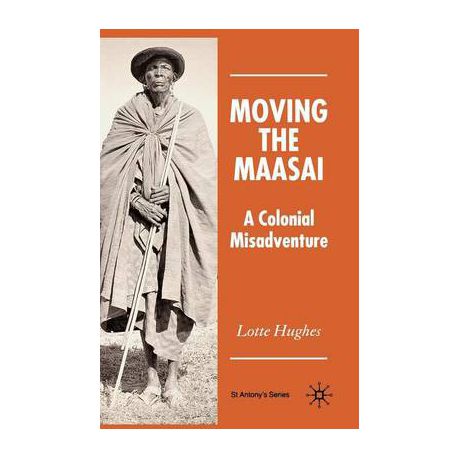




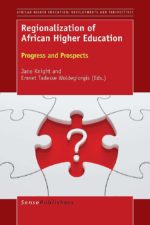
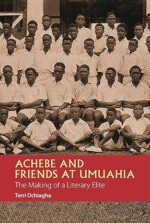
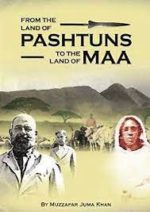
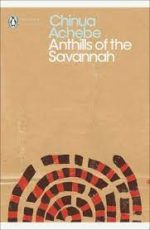
Be the first to review “Moving the Maasai: A Colonial Misadventure (St Antony’s Series) 1st ed. 2006 Edition”